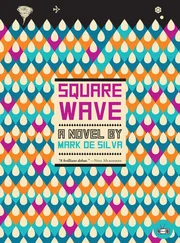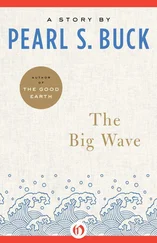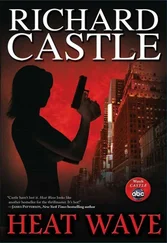I never did find Crazy Crow. I stopped searching the day I found the shirt Vik wore on our last evening, Christmas night. It was a lime-green cotton shirt. I remembered him fussing that he didn’t want to wear it, it had long sleeves, which he didn’t like. Steve rolled up the sleeves for him. “There, that looks smart.” When I found the shirt, it was under a spiky bush, half-buried in sand. I pulled it out, not knowing what this piece of tattered yellowing fabric was. I dusted off the sand. Those parts of the shirt that had not been bleached by salt water and sun were still bright green. One of the sleeves was still rolled up.
M y journeys to Yala became less frequent after I began to harass the Dutch family. By that December, as the first anniversary of the wave approached, I had this new fixation. Strangers had moved into our home in Colombo. A Dutch family. When I was first told the house had been rented to them, I raged at Rajiv for doing it. I was desperate. I screamed. I explained: the house, it anchors me to my children. It tells me they were real. I need to curl up inside it, now and again. But my brother could not comprehend any of this. Why would I want to crawl back into that torturous space? It was so empty of them now. And he didn’t live in Sri Lanka, and I was not in a state to manage it. He had no choice but to rent out the house.
But I smashed my head on the wooden frame of the bed after he told me this. Again and again I bit my arm.
I was spinning in a helpless rage. My boys have been flung out of their home. Other people are in our house, infesting it, erasing Vik and Mal. I want to sit in our garden. I want to pluck on a blade of grass that my boys pounded on. And I can’t? All these months with everyone coaxing me, you have to live, and now I can’t even do this?
On the night I learned about the Dutch family, I drove to our home. I went alone.
I know what I’ll do, I thought. I will smash the car into the front wall. It will burst into flames. I will die. That will be fitting. Killing myself in our home. I’ll do it with an explosion. I’ll do it in style.
This was my first time driving alone since the wave. It was dusk, when traffic is cranky on Colombo roads. I tore through, steering with one hand, overtaking on the wrong side. I played one of Steve’s old The Smiths CDs. My friends from England had brought me a selection of our music, but I couldn’t bear to listen to most of it. I did play The Smiths, though. Hearing them didn’t feel so raw, they were not from our immediate life. It was when we were undergraduates in Cambridge that Steve was possessed by them. Now, in the car, I played “There Is a Light That Never Goes Out” repeatedly. “And if a ten-ton truck kills the both of us, to die by your side, well the pleasure, the privilege is mine.” Ah, this is noble. I swung the car into our street.
When I approached the house, my foot wouldn’t slam on the accelerator pedal as I’d planned. I slowed down just as I did when we lived here. Just as then, I got to the front gates and stopped. The gates were closed. We always kept them ajar at this time, and our security guard would open them when I pulled up. He’d wake from his nap for the glare of the headlights and rush out in disarray, tripping over his open sandals, buttoning his shirt. None of that now. The gates stayed shut.
I could see curtains open in all the bedrooms. Lights were on. Other children, in Vik and Malli’s room. Other children, readying for bed upstairs. It is December. These other children, will they have a Christmas tree? Will they put it right where we put ours? My head dropped to the steering wheel. I stayed a few minutes. Then drove off.
Strangers in our home. It’s ghastly. The Dutch family, settling in there like nothing’s happened. They must be dancing around in their fucking clogs.
I can’t allow them to stay, I vowed. Our home is sacred. I need to get it back. But how?
Maybe I can scare them. Hound them out.
So I went back, every night. “There Is a Light That Never Goes Out” became my anthem. The bounce in the music made me drive fast. And of course the lyrics. Morrissey was singing for me. “ ‘Because it’s not my home. It’s their home. And I’m welcome no more.’ ” I shouted along.
Powered by The Smiths and several shots of vodka, I didn’t sit outside the house silently anymore. I got out. I pounded on the gates. Those gates are made of metal sheets, they boomed as I punched and kicked. Hello, Dutch family. All nice and calm in the house, is it? A peaceful Sunday evening? I’ll show you peaceful. Take this. When I heard the front door open, I drove off. Then returned ten minutes later, kicked the gates again. They must be getting worried now, surely. Just a teeny bit. It’s happening every night. Some nutter banging on the gates at all hours. They must be unnerved. How much it pleased me, that thought.
Sometimes I’d ring the doorbell. At two a.m. Asleep, are we? Not for long, you won’t be. I’ll see to that. I had to keep my finger pressed on that button for many minutes before anyone stirred. No security guard ran to the gate in disarray. He must have taken Ambien, like me, I thought. A light would come on upstairs, in what was my parents’ room, and I’d get back in the car and blare the horn. Or I’d wind down the car windows and turn the music up. More of The Smiths. “Bigmouth Strikes Again” now. I hope you can hear this in there, I said as the car stereo hammered out the words “by rights you should be bludgeoned in your bed” in our hushed Colombo street.
I drove back with a swagger along an empty Bullers Road. I laughed out loud.
I suddenly felt more in command, not so powerless. Steve will appreciate what I am doing, I thought. Scaring away the Dutch, this is taking some imagination. Steve will be pleased I’ve still got that.
Alone in the darkness of my car, I was able to let in thoughts of my family. For some moments at least, I didn’t try to quell them. Ringing the doorbell reminded me of Steve’s yarns about playing knockdown-ginger when he was a child roaming his East London council estate during school holidays. He taught our boys to try the prank on me. If I was home when they returned from the park, they’d ring our bell and scram to hide behind the hedge next door: “Shh … Mummy doesn’t know it’s us.” I could hear them now, as I drove through a red light at the Thunmulla junction. I shrank back from their voices. I couldn’t see the road in front of me for wanting them.
Since I started on the Dutch family, my days livened up. I still woke paralyzed by the chant “they are dead,” but slowly my mind revived. I had to plan for the night. I lay in bed and schemed. Getting rid of the Dutch required serious thought. I’ll go to the house at different times each night, I won’t be predictable. I’ll give you a few nights’ break, my lovely little tulips, and when you think it’s all over, I’ll start again.
I clasped a seashell in my fist as I strategized, one of those cowrie shells I found in the house before it was rented. On its shiny surface still, Malli’s fingertips.
My relatives and friends became concerned about my nightly forays. After months of begging me to leave my room, they now tried to hide the car keys. “You mustn’t harass those tenants, they are innocent in this, it’s not their fault,” they’d plead. “You are driving yourself insane.”
Finally. I was insane. I liked this. And even if I didn’t really believe I was, I welcomed the chance to act as if deranged. I’d been too compliant since the wave, immobilized on that bed, crushed and numb. Everyone’s dead, that’s not how I should be, I should be raving around.
I began phoning the Dutch family. At night, late. At first I had to force my fingers to tap out that number. They hovered over the keypad as if incredulous that I wasn’t calling my mother. The first few times I called, I said nothing when the Dutch man answered. “Who is this? Who is this?” he kept asking. A chilling silence from me, I thought. Let him think this is a portent of worse to come.
Читать дальше












